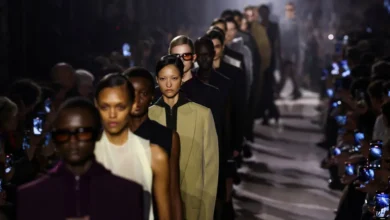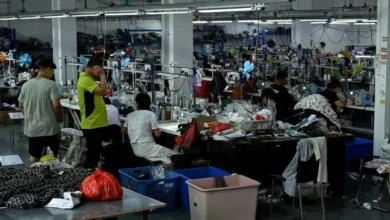4 Beauty Execs Forecast What’s to Come in 2025 and Their Biggest Lessons Learned in 2024
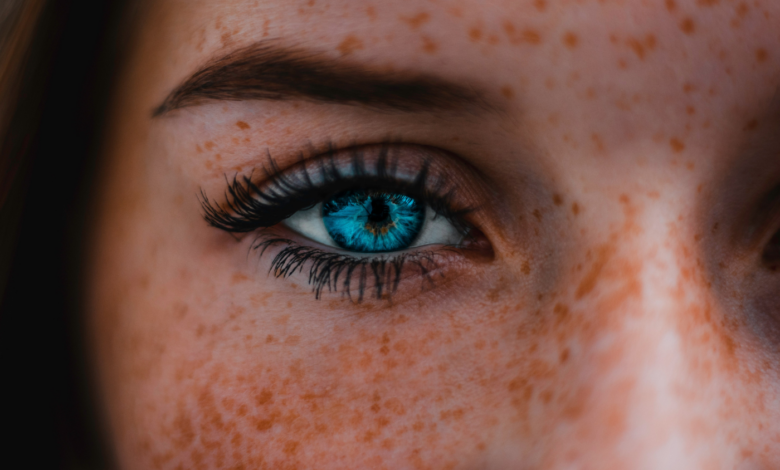
Election season swiftly shifted to holiday season, and it won’t be long before offices sit idle until January. With another year coming to a close, where does the beauty industry stand — and where is it headed?
To get a top-level view, we first asked Circana what story 2024 beauty industry sales data told. Then, we sat down with four brand executives (who this year achieved significant milestones of their own) to learn key takeaways, as well as what’s on their radar for 2025.
According to Circana, U.S. prestige beauty sales grew by 8% to $15.3 billion in the first half of 2024 — with mass sales remaining flat. Among the key highlights were a 15% rise in prestige fragrance compared to the same time in 2023. Makeup continues to be the largest prestige category with year-over-year sales up 5%, seeing less traditional formats outside of the lip category overperforming. Through June 2024, prestige skin care sales increased by 7%; body took over as the fastest-growing skin care segment.
Glancing into the crystal ball, the wellness industry and its impact on beauty will continue to gain momentum in 2025. According to Circana Senior Vice President and Global Beauty Industry Advisor Larissa Jensen, “One of the biggest trends that will impact the beauty industry in years to come is the rising importance of self-care. Most Americans practice self-care and have prioritized it in some way, with 77% practicing self-care in the form of mental wellness.”
Jensen added, “This is important because many elements of beauty connect to mental wellness. While makeup and fragrance are the more traditional mood boosting beauty categories, we have seen how even a category as basic as personal cleansing is taking a greater role in bringing joy to consumers through neurologically proven scents triggering happiness. Wellness has evolved and beauty is one of the rare industries that meets at the intersection of the key pillars of both physical and mental wellbeing that define it.”
While data can easily analyze the past and make predictions for the future, actual trends have lifespans of their own that don’t necessarily align with the Gregorian calendar. When speaking to executives, it was clear their own past experiences, risk tolerances, and brand philosophies all contributed to their thoughts about the of the industry and where they see it going.
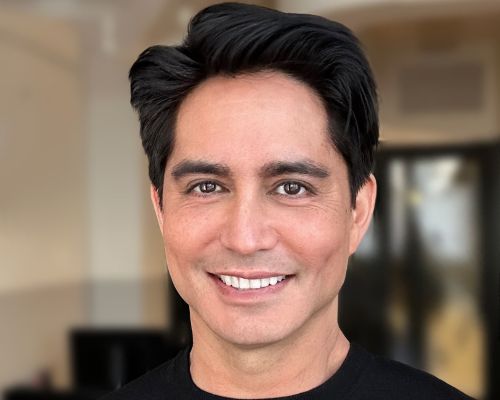
Alec Batis
CEO & Chemist Co-Founder
Sweet Chemistry
A self-proclaimed “product guy,” Alec Batis spent 30 years as a cosmetic chemist before making the jump to the marketing side, where he masterminded memorable launches for Pfizer, the L’Oréal Group, and Shiseido/NARS. He launched Sweet Chemistry in 2023 betting on the skin-regenerative power of Matrikynes polypeptides, an ingredient derived from upcycled bovine bone that is used in clinical settings to repair damaged organs. These polypeptides have been clinically proven to improve skin barrier function, barrier repair, skin density, hydration, discoloration, fine lines and wrinkles.
CEW: What were your goals for 2024?
Alec Batis: For 2024, my goals were to establish credibility and get funding. A couple of weeks after launch, we started getting calls from every major VC. We ended up going with Sandbridge Capital and we were very lucky there. I can go into more production now that sales are spiking and I can do marketing, which is incredible.
CEW: What had the biggest impact on the industry this year?
AB: The customer wants science now. They don’t want to be fooled anymore with all the tricks — and I know all of them. I believe there will be a reckoning of what ‘science-backed’ means as almost every brand attempts to market themselves in that vein. Credible founders who can speak to true ingredient innovation instead of marketing ‘complexes,’ and brands with their own R&D laboratories will be more prominent as long as they learn to translate their technologies to the public effectively and in an aesthetically aspirational way.
CEW: Do any learnings from the past year stand out?
AB: It’s important to be a “product guy” when you’re making skin care that people put on their faces and bodies every single day.
CEW: What are you excited about for 2025?
AB: I think the thing that is advancing the fastest is biotechnology. By synthetically producing some naturals and proving they have the same efficacy, we don’t have to strip the land in order to have pretty skin. On a similar note, I’m seeing growing support for regenerative farming. One example is Macro Oceans, and they are building kelp farms in villages where the fishing industry no longer exists. They extract polymers that can be used as humectants in beauty products. We’re going to be putting that into some of our products.
CEW: What are your thoughts on trends, current or in general?
AB: We don’t do trend because we’re just doing what’s good for the skin and we know what that is.
CEW: What do you say to Circana’s wellness and self-care prediction for 2025 and beyond?
AB: Self-care used to be a mask and a fabulous facial. It’s also more than what I slather on my body and what I eat. It’s hard to know who to trust so you have to educate yourself. Educating yourself is self-care.
CEW: And how does Sweet Chemistry approach wellness?
AB: At the end of the day, chemistry is all about science, which is affirming and warm. Science heals and brings people together. That’s why our chemistry is sweet as opposed to cold, bitter and intimidating. When I think about wellness and the beauty industry, we need to do something more than the physical and support other forms of beauty if we want to call ourselves the ‘beauty industry.’ Otherwise, we should call ourselves the ‘look-pretty industry.’
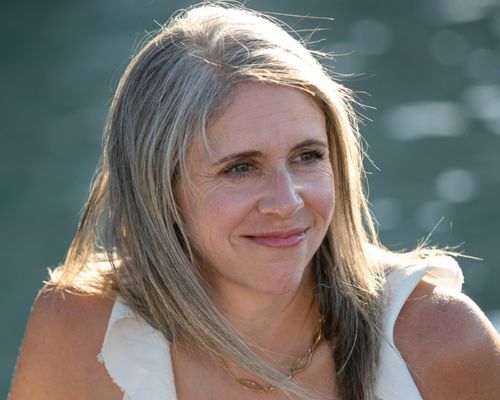
Kathleen O’Brien
CEO, North America
Weleda
After stints at Unilever and Pepsi early in her career, Kathleen O’Brien leaned into the natural beauty and CPG space with roles at Burt’s Bees, Seventh Generation and Grove Collaborative. In the fall of 2023, she stepped in as Weleda CEO tasked with modernizing the 100+-year-old heritage brand.
CEW: What were your goals for 2024?
Kathleen O’Brien: For Weleda, 2024 has been a year of transformation and focus. To drive this, we needed to be led by the consumer. We did qualitative and quantitative research and shop-alongs. We tried to talk to as many customers as possible, including people who have used our brand for years, as well as those who had used our brand and then, quite frankly, never bought it again. We learned that people are aware of our brand, but we have a lot of work to do.
CEW: What had the biggest impact on the industry this year?
KO: Consumers now want ingredient-led and personalized innovation at an accessible price. We know that the number one purchase driver particularly in facial care is efficacy. Consumers won’t buy a product unless they believe it delivers results. While they’re willing to pay more for products that work, they are also discerning about how they spend their money. Ultimately, it must be potent enough to get the job done, while still being affordable.
CEW: Do any learnings from the past year stand out?
KO: The number one thing we heard from customers is that we have work to do on packaging. Our number one marketing medium isn’t working for us. It needs to be modernized, premiumized, and clearer about what the product is and does. Even Skin Food customers were confused! In order to modernize the brand and stay relevant, we also need to make sure we are speaking to our customer where they live and breathe — which is digital and social.
CEW: What are you excited about for 2025?
KO: Particularly in beauty, ingredient-led and personalized innovation at an accessible price will continue to flourish.
CEW: Are there any trends that you are paying attention to as your look to the future?
KO: The customer wants it all and they don’t want to compromise anymore. They want effective skincare, personalized ingredients, cleaner ingredient statements and a price that fits their budget. Between innovation and pricing, we’re aiming to deliver on that value equation for the customer.
CEW: What do you say to Circana’s wellness and self-care prediction for 2025 and beyond?
KO: There’s no question self-care is incredibly important—mentally, physically and spiritually.
CEW: How would you explain Weleda’s approach to wellness?
KO: Wellness means different things to different people at different times. We want to meet them where we are and be there with what they need.
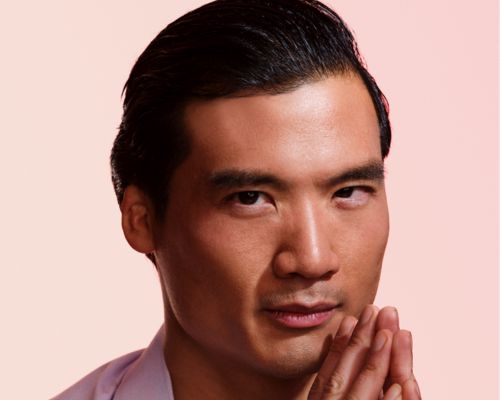
Jeff Lee
CEO and Co-Founder
DIBS Beauty
Jeff Lee and his partner, influencer Courtney Shields, launched DIBS Beauty during the pandemic. In just a few short years, this “creator-developed, community-approved” brand has won a litany of coveted industry awards and recently expanded into retail with a broad launch at Ulta Beauty.
CEW: What were your goals for 2024?
Jeff Lee: DIBS Beauty turned three this year, and after holding off on brick-and-mortar expansion our goal was to enter retail. Before we did, it made a lot of sense to us build up the customer base, build up product pipeline and get all the kinks out before we really committed. Ultimately, our Ulta launch in August wildly exceed our expectations.
CEW: What had the biggest impact on the industry this year?
JL: Across beauty in general, I think anything that happens at the major conglomerates impacts every brand, no matter where they are in the orbit. So, everyone’s looking at what has been going on with these big businesses and wondering if these are things we should be worried about in terms of resources to expand and the growth we can expect. I would still rather be in beauty than anywhere else in consumer goods.
CEW: Do any learnings from the past year stand out?
JL: If there was one message that came out loud and clear this year, whether in cosmetics industry or the political sphere, it was that the customer is watching every dollar but is also very willing to deploy it when there’s value and emotion behind that they are putting it towards.
CEW: What are you foreseeing for 2025?
JL: I think the dominance of Ulta and Sephora will continue to be unabated, and this will have a tremendous effect on all brands that are developed. There’s been an oversaturation of product types within categories — like the lip rush of the past few years. Brands really need to stop chasing each other, and I think that piece is going to bottom out. There’s just not enough room for 20 iterations of the same fundamental product.
CEW: What are your thoughts on trends, current or in general?
JL: TikTok continues to be an incredible driver of trend in the cosmetics category, but it’s no longer just about the wow factor. Maybe in preceding years you saw products and brands explode because of a crazy color, texture or effect. Those strategies don’t seem to be resonating with the TikTok audience as much. Not that they have gone away, it just seems TikTok trends are leaning more towards ingredients and product efficacy.
CEW: What do you say to Circana’s wellness and self-care prediction for 2025 and beyond?
JL: A decade ago, we thought of ‘well’ as an ultimate physical goal. We thought of physical and psychological health as two completely different things and not interwoven with one another. Now there’s a greater understanding of how the two intertwine. One reason wellness has infiltrated so many spheres because it’s a general aspiration to lift your steady state no matter where it is. You’re just starting from a higher baseline and that’s a really wonderful thing.
CEW: How would you explain DIBS Beauty’s approach wellness?
JL: We believe the best thing we can do to contribute to the wellness of everyone who touches our brand is to make makeup so easy to opt into affirmatively. We look at makeup as being uncomplicated for simple reasons. The mere act of doing it is something extra in your life that you are opting to do to feel better. In previous generations you did it out of obligation to others or because you felt you had to.
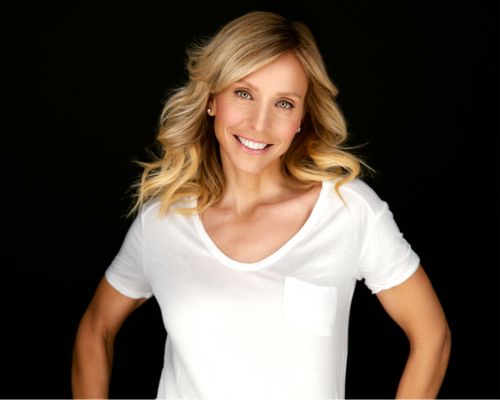
Dimitra Davidson
President and COO
Indeed Labs
Named 2024 Businesswoman of the Year by the Women Empowerment Awards, Dimitra Davidson oversees Indeed Labs from a unique perspective shaped by her human resources background and luxury experience with Tiffany & Co. She sees herself as more than a brand founder, choosing to make her mark as a business leader and mentor to young women, including her three daughters.
CEW: What were your goals for 2024?
Dimitra Davidson: Our focus for the first part of the year was launching our core SKUs at CVS stores across the country. We put a lot of work into ensuring we made a positive impact with consumers across the United States and continue to make inroads and bring quality products to market. For the second half of the year, we focused on the U.S. launch of our new brand pH-In, which is an acne system.
CEW: What had the biggest impact on the industry this year?
DD: Obviously we saw the explosion of a very young consumer entering our world. This was so unusual for someone who launched a brand 15 years ago when I could barely get more mature women to explore skincare, let alone Gen Z.
CEW: Do any learnings from the past year stand out?
DD: We’ve seen a slow-down of the manic, fickle consumer jumping around from brand to brand using different products that maybe have the same benefits. I feel a lot more of a foundation of people gravitating to their favorite brands now. They are giving brands an opportunity to work because they know they’re not going to see results unless it’s used for weeks. Consumers have gotten more confident, which is great.
CEW: What are you excited about for 2025?
DD: We’re seeing a lot more customers who want the results they are promised and an affordable price. There will be a big opportunity for masstige brands, and brands that compare themselves to higher-end brands. Customers are asking themselves why they’re spending more money on this brand versus a more affordable brand.
CEW: What are your thoughts on trends, current or in general?
DD: AI is really impacting our industry and it’s a major focus in my world right now. There are so many AI tools out there to navigate. Which one are going to make sense for our business? How can we maintain authenticity while using these tools? I’m in my learning era and have given myself the task to spend one hour a day exploring and educating myself about this technology.
CEW: What do you say to Circana’s wellness and self-care prediction for 2025 and beyond?
DD: We’re all wanting to give ourselves love. Self-care and self-love are here to stay, and I’ve loved watching the evolution. As an example, I’m seeing those who were once more aggressive with skin care taking a step back. People are acknowledging they may have overdone it a bit.
CEW: How would you explain Indeed Labs’ approach wellness?
DD: We’ve always been an advocate for consumers, and we start with healthy habits. To me, beauty has nothing to do with the products and has everything to do with the consumers and how they feel.







